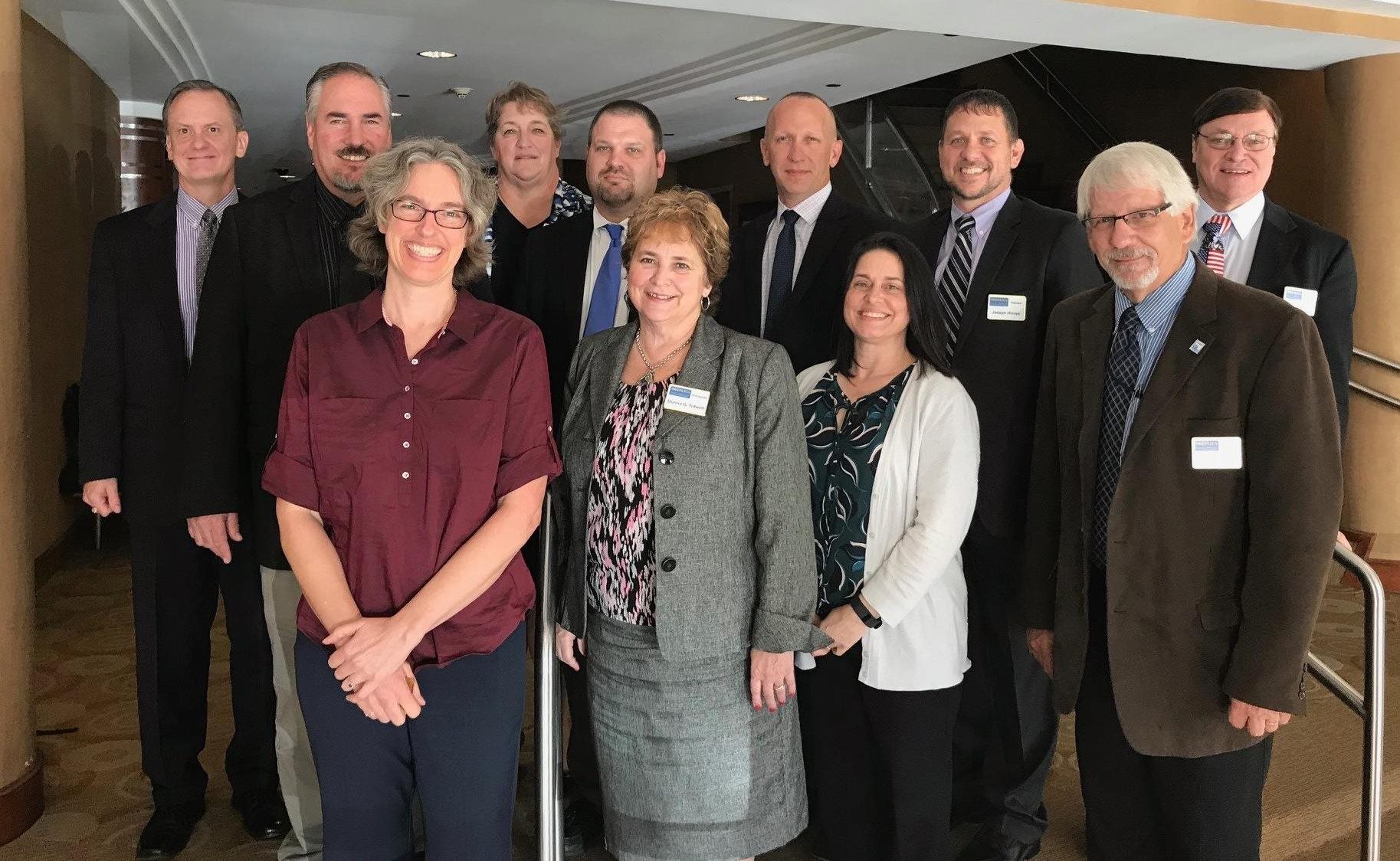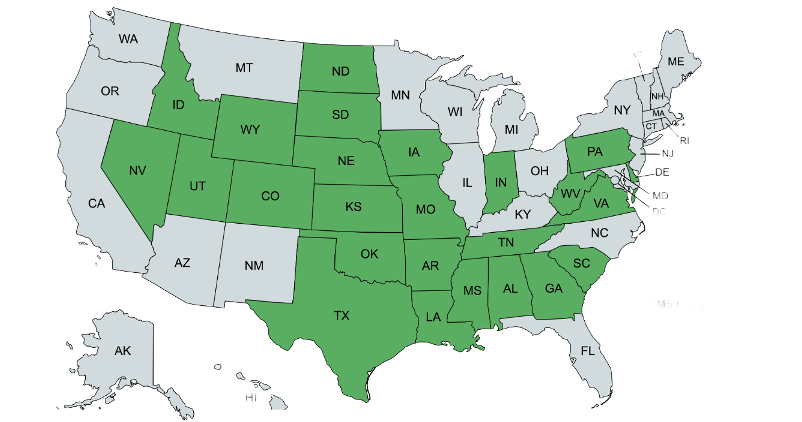EMS Compact History
The initial work on the United States EMS Compact began in 2012 to develop a model interstate compact that would solve day-to-day challenges when EMS Clinicians deploy across state boundaries. Examples include:
- EMS Clinicians responding as part of an agency with a multi-state footprint
- Staffing for large unplanned events that do not reach the level of a Governor’s disaster declaration
- Staffing for large planned events such as concerts and races
The project drew on the proven success of other interstate compacts, such as those used for nursing and driver licensing, which allow recognition across states within clearly defined legal terms.
EMS Compact Historical Timeline
- 2012: Department of Homeland Security’s Office of Health Affairs and 29 states identify the need for an EMS licensure compact.
- 2013: National Advisory Panel (NAP) convenes to guide Compact development and policy framework.
- 2014: Drafting Team finalizes the Recognition of EMS Personnel Licensure Interstate Compact (REPLICA) model legislation.
- 2015: Colorado and Texas become the first states to enact the Compact.
- 2017: Ten states enact the Compact, meeting the activation threshold. The first meeting of the Interstate Commission for EMS Personnel Practice is held in Oklahoma City.
- 2020: Compact officially activates the Privilege to Practice during the COVID-19 pandemic response.
- 2021–2025: Continued expansion; 25 states become members. Compact operations and NEMSCD database reach full functionality.
Phase One – National Advisory Panel (NAP)
- View the National Advisory Panel’s Statement of Purpose (2013)
- View the January 2013 Meeting Agenda
In January and March 2013, the National Advisory Panel met to guide early Compact development and build a structure to protect the process. The NAP led policy analysis and issued recommendations, including to:
- Move forward and develop a compact that preserves state sovereignty and collective control
- Create a state-based regulatory system where national policy can be implemented and data exchanged, while remaining flexible for an evolving EMS profession
- Work closely with the Council of State Governments’ National Center for Interstate Compacts (CSG-NCIC)
The National Advisory Panel comprised representatives from stakeholder organizations. Stakeholder experts from EMS agencies, federal partners, and the EMS industry included:
- American Ambulance Association
- American College of Emergency Physicians
- Association of Air Medical Services
- Association of Critical Care Transport
- Bureau of Land Management
- EMS Labor Alliance
- Federal Bureau of Investigation
- Federation of State Medical Boards
- International Association of EMS Chiefs
- International Association of Fire Chiefs
- International Association of Fire Fighters
- International Association of Flight and Critical Care Paramedics
- National Association of EMS Educators
- National Association of EMS Physicians
- National Association of EMTs
- National EMS Management Association
- National Governors Association
- National Registry of EMTs
- National Volunteer Fire Council
- USDA Forest Service
Phase Two – The Drafting Team
- View the summary presentation of the Final Draft (2014)
The Drafting Team met in June, August, and October 2013. This national team of compact and subject-matter experts translated NAP guidance into uniform statutory language, using a structured, time-tested process. Organizations represented included:
- National Association of State EMS Officials
- Council of State Governments
- Association of Air Medical Services
- International Association of Flight and Critical Care Paramedics
- International Association of Fire Fighters
- National EMS Management Association
- National Association of EMTs
- Vedder Price Law Firm
The Drafting Team developed the EMS Compact’s model legislation, approved and released for consideration in June 2014. Key elements included:
- Creating a contract between states via enactment of identical legislation
- Extending a Privilege to Practice to qualified EMS Clinicians from other Member States under specified conditions
- Granting Member States authority over visiting EMS Clinicians while they practice in the state
- Establishing a governmental Commission to promulgate rules
- Creating a national, coordinated database for licensure and discipline
Phase Three – Education and Enactment
- View the June 2014 REPLICA Seminar Book
Activation required ten state legislatures to enact the model legislation. NASEMSO led national education and state-by-state strategies to support bill introduction, passage, and gubernatorial signature.
Phase Four – Transition to Commission
The inaugural meeting of the Interstate Commission for EMS Personnel Practice, the governing body of the EMS Compact, took place in October 2017 in Oklahoma City, Oklahoma.


Compact Activation
The Compact became legally operational when the tenth state enacted the model legislation in 2017. On March 15, 2020, the Commission formally activated day-to-day Privilege to Practice operations, recognizing the public benefit as EMS Clinicians responded to the COVID-19 pandemic. Although the National EMS Coordinated Database was not yet fully operational, the Commission proceeded to ensure timely, lawful interstate practice.
Current Status
The EMS Compact is currently adopted as law in 25 states.

| Alabama | Louisiana | South Carolina |
| Arkansas | Mississippi | South Dakota |
| Colorado | Missouri | Tennessee |
| Delaware | Nebraska | Texas |
| Georgia | Nevada | Utah |
| Idaho | North Dakota | Virginia |
| Indiana | Oklahoma | West Virginia |
| Iowa | Pennsylvania | Wyoming |
Last updated: October 2025 by the Interstate Commission for EMS Personnel Practice.
